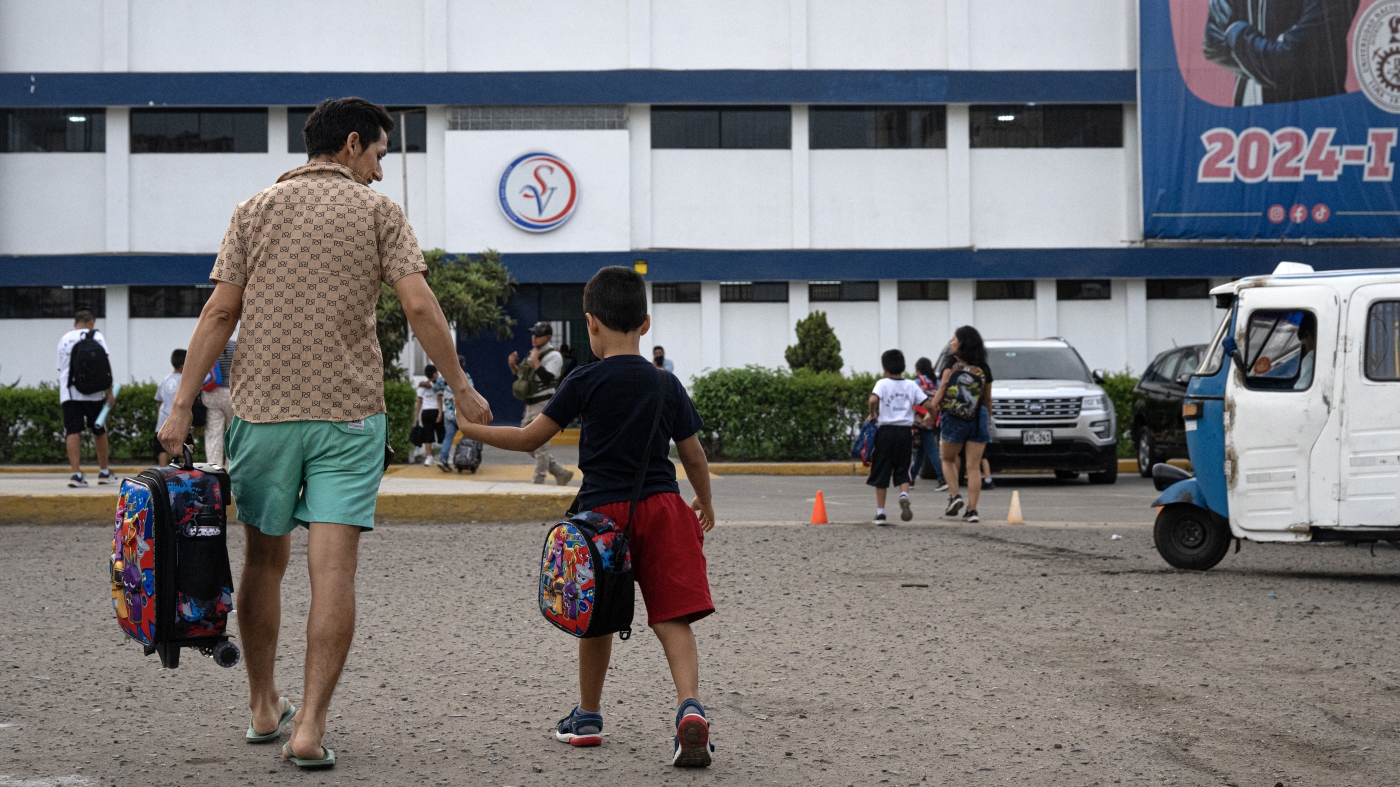Peruvian Schools Under Siege: The Rising Threat of Gang Extortion

Parents drop off their children at the private San Vicente School in Lima, Peru, which was targeted for extortion, in April. Ernesto Benavides/AFP via Getty Images
In Lima’s peripheral districts, where a Roman Catholic elementary school stands, the mood among students is carefree, yet the administration grapples with a serious threat. A school official reveals that gangs are demanding between $14,000 and $28,000 from them, sending ominous messages and images of weapons to back their threats.
These threats are not merely bluffs. Recently, police detained a 16-year-old who had been hired by gangs to plant a bomb at the school’s entrance, despite having no ties to the institution.
Many private schools in Peru become easy targets for extortion due to the subpar public education system. These schools often find themselves in crime-ridden neighborhoods where gangs demand a share of their tuition revenue.
Miriam Ramírez, heading one of Lima’s major parent-teacher associations, indicates that around 1,000 schools are succumbing to such demands. While some have shifted to online learning to protect students, others have been forced to shut down.

Miriam Ramírez is president of one of Lima’s largest parent-teacher associations and she says at least 1,000 schools in the Peruvian capital are being extorted and that most are caving into the demands of the gangs. John Otis for NPR
Ramírez warns, “The country is going to end up in total ignorance” if this trend continues. The extortion wave is part of a larger crime surge in Peru, exacerbated by the COVID pandemic and an influx of Venezuelan migrants, including the notorious Tren de Aragua gang. However, authorities struggle to link Tren de Aragua directly to school extortions.
Former police commander Francisco Rivadeneyra highlights corruption within the police as a contributing factor, with officers allegedly accepting bribes to inform gangs of impending raids. NPR attempted to reach the Peruvian police for a statement without success.
Political turmoil has compounded the issue, with six presidents in nine years due to corruption scandals. President Dina Boluarte declared a state of emergency in March, deploying the military to combat crime in Lima, though analysts remain skeptical of its impact.
Extortionists have shifted their focus to Lima’s poorest areas, exploiting small businesses and even soup kitchens. Genoveba Huatarongo, involved in a community kitchen, reports that gangs demand “protection” payments, following violent incidents against her staff.
Yet, resistance persists. Carla Pacheco, a small grocery owner, refuses to pay the $280 weekly extortion fee, opting instead to protect her family by changing her children’s schools and restricting store access.

Carla Pacheco runs a tiny grocery in Lima and she is refusing to make the $280 weekly payments that local gangsters are demanding. John Otis for NPR
Despite the dangers, Pacheco remains defiant. “I can’t support corruption because I am the daughter of policeman,” she asserts. “If I pay the gangs, that would bring me down to their level.”
In March, the San Vicente School in Lima responded to a bomb threat by hiring security and briefly shifting to online classes. To protect students, they advised against wearing uniforms, fearing gang retaliation.
While some schools attempt resistance, many have capitulated. One Catholic school administrator admits that after reporting extortion to the police, they were advised to pay up for safety, thus incorporating extortion into their budgets.







Be First to Comment